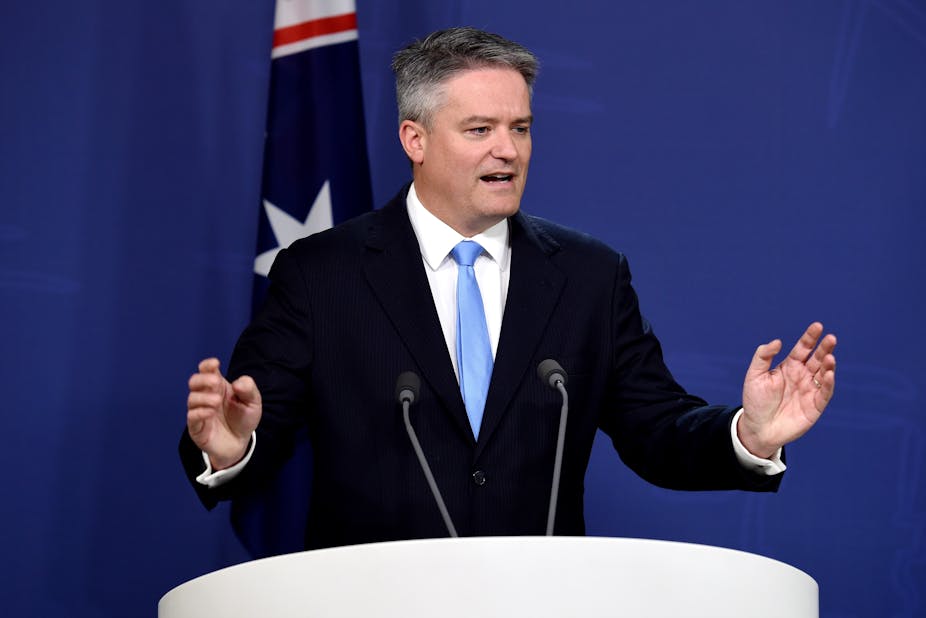Finance Minister Mathias Cormann says government spending needs to be reduced over time to an average of around 24% of GDP “at the most”, and warns that sustainable budget reform cannot be delivered without continuing structural reform of programs.
Speaking at the Sydney Institute, Cormann said there was “no easy way to repair the budget, as suggested by some, just by slashing the public service”.
Spending was expected this year to come in around 26% of GDP, and was projected to come down to 25.3% by 2018-19. “But to ensure federal government expenditure is affordable in our economy and doesn’t force us into higher taxes overall, over time we need to get back to an average level of government expenditure of about 24% as a share of GDP at the most and stabilise it at that level.”
He said that in the last year of the Howard government, spending as a share of GDP was 23.1%, and over the whole Howard period expenditure averaged about 24%.
Rebutting the notion that cuts to the bureaucracy would do the budget repair job, Cormann pointed out that the public service wage bill was less than 5% of federal government spending.
“Most of our federal government expenditure goes into programs – the age pension, the disability pension, the NDIS, unemployment benefits, medical benefits, pharmaceutical benefits, payments to the states and territories to support their schools and hospitals, our border security, our defence forces and more.
"Of course we will continue to pursue our smaller government agenda – seeking to ensure that public spending on government administration and services is as efficient and as effective as possible,” he said. “But we will not be able to achieve a sustainable budget position without continuing structural reform of government program spending.”
Earlier on Monday, Treasurer Scott Morrison said the spending challenge “is not about cuts, it is about control – because if you can control expenditure and can get a tax system that is going to help grow the economy, then that is what is over time going to strengthen the budget and this is what our focus is.”
Asked whether “control” was a new word for cuts, Morrison said: “No, it is a real word for keeping the lid on the pressures that are driving expenditure up and at 26% of GDP, that is not a sustainable position.”
Morrison also again appeared to leave the way open to look at the tax concessions on superannuation. Former prime minister Tony Abbott had ruled this out, but the Turnbull government is trying to keep all options open publicly.
Morrison told 3AW that it was important to keep stability and certainty in that area but “there have been many issues raised in the area of retirement incomes”.
“The old politics of a few weeks ago and the last seven years which has been very combative I think has unnecessarily stymied debate and consideration of things. It is good to be in an environment where other things can be practically considered.”

